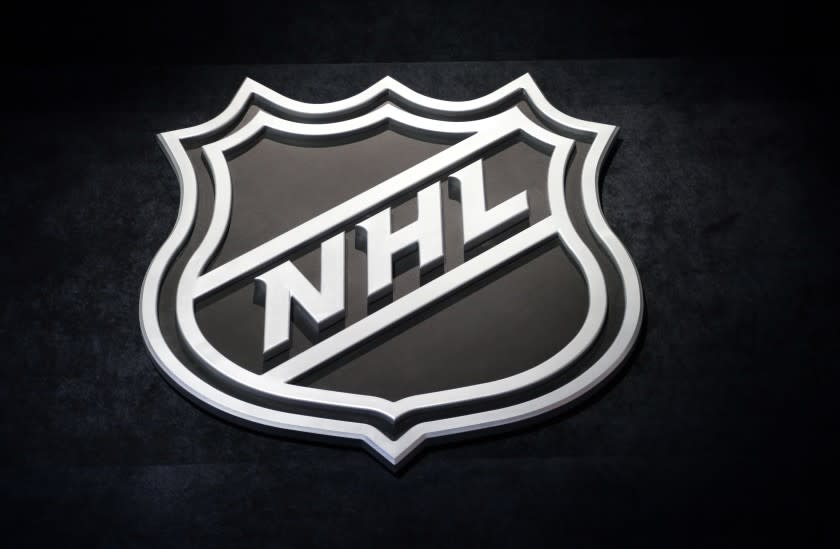NHL, NHLPA reach tentative agreement on return-to-play plan and CBA extension

The NHL and NHL Players’ Assn. on Monday announced they had reached a tentative agreement on a detailed Return to Play plan that would relaunch the season on Aug. 1, and at the same time said they have a Memorandum Of Understanding to extend their existing collective bargaining agreement by four years, through the 2025-26 season.
In identical statements, the league and the union said formal training camps will start on July 13, the third phase of the four-phase plan. That will be followed by travel to the two playoff hub cities on July 26. The qualifying round, part of the expanded, 24-team playoff format, will start on Aug. 1, launching Phase 4. The two hub cities were not specified but the sites reportedly will be Edmonton and Toronto. The conference finals and Stanley Cup Final will be held in one city.
The agreement is subject to approval from the NHL’s board of governors and from the NHLPA’s executive board and full membership.
The NHL halted its season on March 12 because of the COVID-19 pandemic. After considering completing the final 15% of the regular season schedule that remained when play was paused, the league and the union agreed instead to scrap the regular season and resume with postseason play.
Players will be permitted to opt out of Phases 3 and 4 "without discipline or penalty,” according to the protocol documents. Those players must notify their clubs, the league and the NHLPA within 72 hours of the end of the ratification process if they want to opt out.
In addition, the union and the league each can notify the other during Phase 3 or Phase 4 if one has reason to believe that player health and safety might be jeopardized. In that case, the league, union, NHL event medical director, NHLPA medical consultant and infectious disease experts would be jointly consulted.
The basis for a decision to move, postpone or cancel games “shall be whether the commencement or continuation of the Game[s] would likely create a material risk to Player health and safety and/or jeopardize the integrity of the competition,” the Phase 4 document states. If the NHLPA is unhappy with the decision it can pursue arbitration.
The NHL said 23 players had tested positive for COVID-19 since players were allowed to report to clubs’ training and practice facilities for voluntary, small-group workouts. The league said in a news release 396 players had reported for workouts and that 2,900 tests had been administered as of Monday. The league won't provide names of those who tested positive.
“In addition, since June 8 [the opening of Phase 2], the League is aware of 12 additional Players who have tested positive for COVID-19 outside of the Phase 2 Protocol,” the release said. “All Players who have tested positive have been self-isolated and are following CDC and Health Canada protocols."
Training camps will be held in each team’s home city with a maximum of 30 skaters and an unlimited number of goaltenders permitted to participate. Teams must give the league a list of participants by Thursday.
All players must submit to rigorous procedures that include COVID-19 testing 48 hours before they arrive at the training facility, testing every other day and following social distancing procedures. The use of hot and cold tubs, saunas and steam rooms is prohibited, and teams must follow strict cleaning and disinfecting requirements in their facilities.
Anyone who exhibits symptoms of COVID-19 during Phase 3 will be told to consult the team medical staff and self-isolate. Anyone who tests positive will be isolated from the team. Players who test positive will be designated unfit to play and have “sustained an illness arising out of the course of his employment as a hockey player.” Club medical personnel will conduct contract tracing to determine who might have had contact with an infected player.
The protocol document for Phase 4 emphasizes each person’s responsibility to obey all aspects of the protocol. “While comprehensive, the steps outlined in the Protocol cannot mitigate all risk,” it reads in part. Teams will be situated in a Phase 4 Secure Zone that will include their hotel, restaurants, their practice rink and “other demarcated areas” for entertainment. Anyone who leaves the secure zone might have to undergo testing and a quarantine before they can re-enter.
Players’ families will be permitted to join them during the conference finals and Stanley Cup Final if those family members agree to daily testing and to follow medical protocols. The document also says social excursions will be arranged if health standards can be maintained.
Violations of the protocol can result in fines and/or loss of draft picks for teams, the termination of third party vendors’ contracts, and dismissal of staffers from the Secure Zone.

